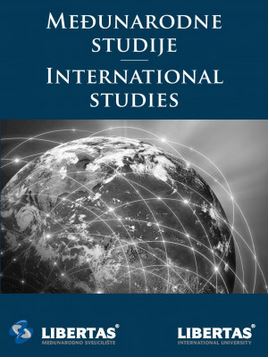Security Implications of Fake News and Disinformation in Nato Member and Partner Countries
Security Implications of Fake News and Disinformation in Nato Member and Partner Countries
Author(s): Marijana Opašinova ŠundovskaSubject(s): Politics / Political Sciences, Security and defense, Military policy, Geopolitics, Corruption - Transparency - Anti-Corruption, Peace and Conflict Studies
Published by: LIBERTAS MEĐUNARODNO SVEUČILIŠTE
Keywords: fake news; disinformation; state stability; elections; pandemic;
Summary/Abstract: Misuse of digital platforms for the dissemination of fake news and disinformation online is becoming an increasingly serious problem both for individual states and multilateral organizations. Alternative facts presented under the veil of awakening critical thinking, or false and purported information placed in the social media environment by state and non-state actors for their own purposes, have been disturbing the credibility of traditional fact-checking media outlets to present actual information to the public. Grasping the notion of parrhesia as part of the democratic free expression in a liberal society via social networks is now seriously questioning the common objective standards of truth. Deliberate interference with fake news and disinformation in contemporary democracies, especially during election campaigns, the use of anti-NATO narrative, particularly in countries with former communist regimes, and recent promotion of a false sense of security or insecurity about the Covid-19 pandemic, became an issue of major concern for the entire Alliance and its field work. Although in essence being a military organization with the aim to secure peace and stability in its wider area and promote its values globally, what the NATO has witnessed in the last decade is that peace and security in the traditional sense cannot be taken for granted. The emergence of modern non-military tactics by adversaries to destabilize member and partner countries require specific methods and approaches for deterrence and defense. This paper will analyze how these alternative facts affect both state and overall Alliance stability, possible implications on the diminishing public trust in state institutions, and actions needed to mitigate their effects.
Journal: MEĐUNARODNE STUDIJE
- Issue Year: 22/2022
- Issue No: 2
- Page Range: 13-34
- Page Count: 22
- Language: English

